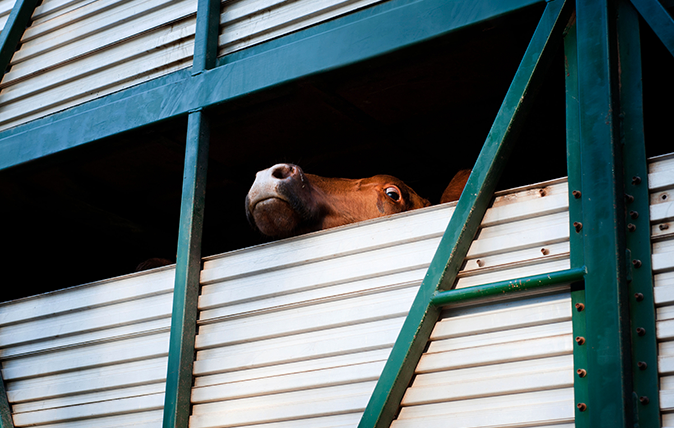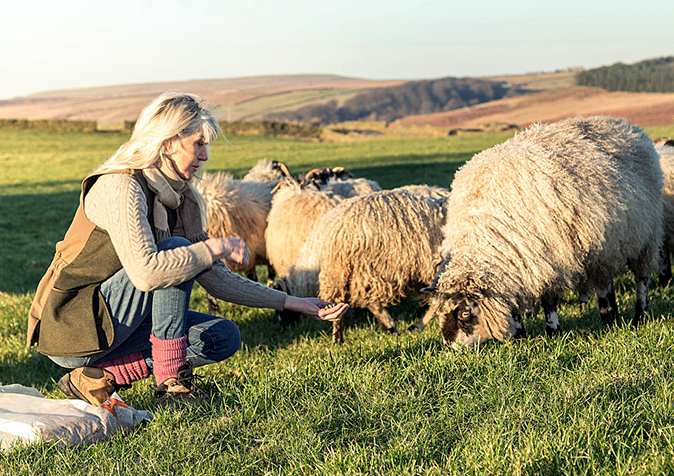New chance to end grim trade in animals exported for slaughter
EU rules have frustrated attempts to ban the export of live animals for slaughter, but Brexit opens the door for a change.


Every year, Britain exports 30,000 live animals for slaughter. They travel in dire conditions that some don’t survive and, days later, when they reach their destination – often a country beyond Europe, where welfare rules are less strict or non-existent, perhaps in North Africa or the Middle East – they can face ritual slaughter, without being stunned, for religious festivals.
Until now, MPs have argued that EU laws prevent the UK from blocking trade in cattle and sheep – attempts to replace the exports of live animals with chilled carcasses have been ruled unlawful under EU law – but with Brexit on the horizon there is new hope, which inspired hundreds to march on Westminster in protest last year, and a petition to sign.
‘Investigations [into the transport of animals] by the RSPCA and Compassion in World Farming have shown chronic overcrowding, lack of adequate water and food, excessive heat and cold, lack of ventilation and almost always no qualified veterinary assistance,’ explains TV presenter Selina Scott (pictured below), who, along with Joanna Lumley, animal welfare campaigner Celia Hammond, former BBC news anchor Jan Leeming and various MPs, has launched a campaign to ban all live exports as soon as the UK leaves the EU.

'Animals that died due to the horrendous conditions were simply tossed overboard'
Philip Lymbery, head of British charity Compassion in World Farming, says the whole system is ‘stuck in a rut’.
‘We are giving business to Continental abattoirs, so the trade is not just horribly cruel, we’re also sending jobs abroad,’ he continues. ‘Middle Eastern countries have the idea that fresher meat is better, but with refrigerated lorries and ships, meat can be exported freshly.’
Back in 1996, 67,488 sheep died when their ship caught fire in the Indian Ocean – 21 years later, the problem persists and it’s global. Australia is the world’s largest exporter of live animals, trading some three million a year to the Middle East and South-East Asia.
The EU exports two million farm animals a year. Last year, investigators found that thousands of cattle – including unweaned calves – were being transported thousands of miles from Eastern Europe to Israel, Gaza and the Middle East, on rust-bucket vessels. Animals that died due to the horrendous conditions were simply tossed overboard.
Exquisite houses, the beauty of Nature, and how to get the most from your life, straight to your inbox.
New Zealand has already set the lead; it banned the transport of live animals across borders for slaughter in 2007. Shouldn’t we follow this example?
Visit https://petition.parliament.uk/petitions/170885 to sign the petition: if it garners 10,000 signatures, the Government will respond; 100,000 and the issue will be considered for debate in the Commons.
Annunciata is director of contemporary art gallery TIN MAN ART and an award-winning journalist specialising in art, culture and property. Previously, she was Country Life’s News & Property Editor. Before that, she worked at The Sunday Times Travel Magazine, researched for a historical biographer and co-founded a literary, art and music festival in Oxfordshire. Lancashire-born, she lives in Hampshire with a husband, two daughters and a mischievous pug.
